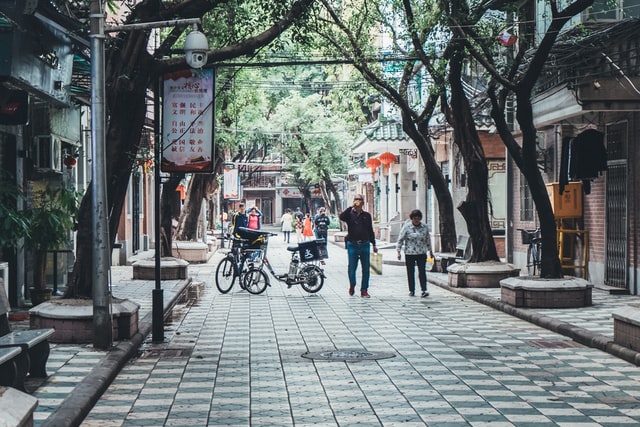5 Essential Phrases for Bargaining in Guangzhou, China

If you’re a gweilo in Guangzhou China (a derogatory term for foreigner in Cantonese-speaking parts of China), you’ve probably noticed you’re getting severely overcharged for everything from your noodle soup to the cute knock-off bags you see on the store shelves. Coming from a society that generally sets prices up front without negotiation, it was pretty hard for me to get into the habit of haggling, but for the people of Guangzhou, it is their lifeblood. They haggle for everything from their daily produce to their apartment rental prices.
Here are some phrases I use to get good shopping deals. I’d recommend you to translate these phrases and add them to a reference sheet when you’re shopping. Now, I’m not able to cover all of the tried-and-tested methods of bargaining, but these are a good place to start. However, I’d advise you to be familiar with proper bargain shopping etiquette before doing so.
5 Essential Phrases for Bargaining in Guangzhou, China
1. “I’m going to tell all of my friends in [insert home country] to shop at your store.”
Most shopkeepers are pretty hungry for advertisement. They especially value customer loyalty. Mention [insert home country] around the shop and how interested your globetrotting friends would be if they found out the amazing prices they’d get at the shop, and you’ll definitely get the price lowered. I always make sure to grab a business card or jot down the shop’s street address.
This is my favorite method because shopkeepers warm up to you quickest and I’ve become friends with many locals. In 2008, I purchased a “Beijing Olympics” t-shirt at a local vendor and referred some of my friends to his shop, and to this day I always pop in for a bit of banter and tea when I’m in town. I can be confident he’ll always give me his best prices.
2. “But I’m a poor backpacker/student/volunteer/working parent/etc.”
Generally speaking, shopkeepers will automatically assume that since you’re from the West, you’re made of money. I try to rectify that mistake before I even begin price negotiations. Shopkeepers do categorize shop patrons into two categories: the backpacker/student/long-term volunteer who lives off rice and fire water, and the loaded vacationer who can afford Peking duck every night. Make sure you distinguish yourself as the former from the get-go.
3. “But I saw [whatever you’re interested in buying] down the street, for a better price.” OR “But my roommate/friend/colleague/etc. saw this at [insert shop] for a better price.”
This has worked for me pretty much all over the world, but this is pretty much the universal trick that is way too good to be overlooked. If you don’t have a price in mind just make one up that seems reasonable, or make up the price you’d like to purchase the item for, and go from there, although it’s usually smarter to check the prices in similar shops instead of making up numbers.
5 Essential Phrases for Bargaining in Guangzhou China.
4. “I didn’t see a price tag on this, so I thought I could bargain. The price you just quoted is really expensive, could you do better?”
This one works really well at high street boutiques. I wouldn’t recommend bargaining in high street shops in most countries, but in Guangzhou, it is generally accepted. Shopkeepers may look a bit surprised, but most likely that will be because they don’t expect foreigners to haggle with the ticket price. However, be cautious, as there are exceptions: don’t bargain at name brand stores that you would find in North America or Europe; those prices are set. Through this method I’ve gotten gorgeous antique pieces, beautiful handwoven clothing, and unique local artwork at great prices, and I’ve also met lots of local artisans this way!
5. “I’m leaving tomorrow and I spent all of my money already…”
If you’re down on funds and this is a last-day type of shopping trip for you, you should let the shopkeeper know that. They’ll usually ask you how much you’ve got left, and tell them why you can only spare so much cash before you go. Shopkeepers do want the sale as much as you do, so don’t be afraid to give it a shot!
I realize a lot of people are a bit squeamish about haggling, and a common misperception is that by haggling, you are robbing people of their livelihoods, which is absolutely untrue. Just like all businesses, these shopkeepers usually will either buy wholesale for cheap, or, if the item is a local piece, will mark up the price 80-100% of what they purchased it for. In Guangzhou, shopkeepers will expect you to bargain– in fact, it’s ingrained so deeply in the local culture that if your roles were reversed they wouldn’t think twice about it.
Good luck, and bargain on!
5 Essential Phrases for Bargaining in Guangzhou China photo by Unsplash.








